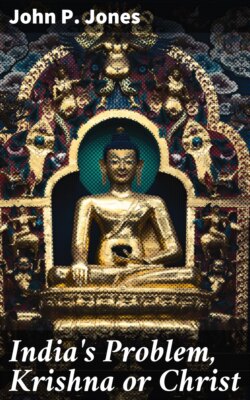Читать книгу India's Problem, Krishna or Christ - John P. Jones - Страница 10
На сайте Литреса книга снята с продажи.
(f) Sikhism.
ОглавлениеTable of Contents
This religion, if we may so denominate it, was founded by Nanak Shah in the fifteenth century. Nanak Shah was apparently an admirer, if not a follower, of Kabir, the Hindu reformer who established a sect which was essentially a compromise between Hinduism and Mohammedanism. This is the chief characteristic of Sikhism. It eschewed the polytheism and idolatry of Hinduism. It taught the unity of the Godhead, abolished caste, and enforced a high type of morality. It has, however, subsequently fallen under the blighting influence of surrounding Hinduism and has lost much of its distinctive excellence. So that, according to the census report of 1891, “distinction between Sikhs and the rest of the Brahmanic community is mainly ritualistic. … The only trustworthy method of distinguishing this creed was to ask if the person in question repudiated the services of the barber and the tobacconist; for the precepts most strictly enforced nowadays (by the Sikhs) are that the hair of the head and face must never be cut, and that smoking is a habit to be avoided.”
However manifestly the Sikh religion is going the common way of all the new faiths and religious revolts of India—the way of reabsorption into Hinduism—it has done much to create and foster a strong national feeling. Sikhs were cruelly persecuted by the then ruling Mohammedans. But the overthrow of the Moghul Empire gave the Sikhs territorial power and they possessed the only remaining political organization in the Punjab. So that, at the advent of the British, the Sikhs were a mighty power to be [pg 062] dealt with. They became the great power of North India; and during the Indian mutiny their loyalty to the British Raj was its salvation. At present the Sikh nation, warlike and valiant as ever, furnishes, perhaps, the most stalwart and invincible contingent for the Indian Army.
